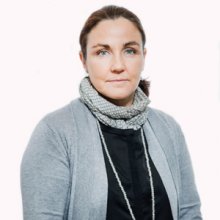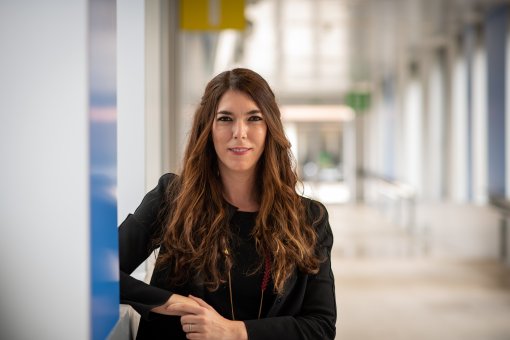Images
Participants

Contact

Over the last 45 years, cancer survival has tripled, and for certain types of cancer, such breast tumours, it reaches 90%.
Elena Sancho gives an informative conference at the CCCB Museum on research perspectives for cancer and metastasis that will lead to an increase in survival.
Tomorrow (Wednesday 27 May) at 19h in the Centre de Cultura Contemporània de Barcelona (CCCB), Elena Sancho, associate researcher at the Institute for Research in Biomedicine (IRB Barcelona), will give a public talk on the current state of research into cancer and metastasis. Admission to the event is free, and it will be broadcasted live through this link. Dr. Sancho (Madrid 1966) studies colon cancer and its metastases in IRB Barcelona’s Colorectal Cancer Lab, where scientists are making ground-breaking contributions to the understanding and treatment of a disease that is among the leading causes of death in developed countries.
The experts indicate that since the 1980s the incidence of cancer has not stopped increasing and state that one in three individuals will be affected by some kind of cancer during their lifetime. Elena Sancho explains that this increase has come about mainly “because of population aging and exposure to more risk factors such as tobacco, contamination, diet, obesity and sedentary lifestyle.”
While this holds true, science has made great progress over the last 30 years. Half of all cancer cases are cured—there are more than 200 types of cancer—and over the last 45 years cancer survival has tripled—for some kinds, such as breast cancer, survival at 5 years reaches 90%. In addition, the first treatments for metastasis—the spread of the primary tumour to other organs, a process that causes 90% of deaths from cancer—are emerging. “This first quarter of a century we are witnessing and will continue to witness significant breakthroughs thanks to basic research performed by hundreds of labs worldwide—breakthroughs that allow us to consider the feasibility of turning cancer into a chronic disease.”
One of the most important contributions made by the Colorectal Cancer Lab has been the discovery of a mechanism that allows colon cancer to metastasize. This result brought about the development of a diagnostic test to differentiate between patients with a good or poor prognosis, as well as the possibility to identify those patients who will most benefit from the treatments currently being developed. “This is an example of a breakthrough that could be very useful for physicians. Fortunately, we have access to a variety of tools and resources that allow us to progress much faster than 30 years ago,” explains Sancho.
Cancer can be described as uncontrolled cell division and replication in a tissue or organ that results in tumour growth. New knowledge and concepts—such as cancer stem cells—and tools—such as immunotherapy, bioinformatics, DNA chips, and the development of sophisticated animal models—provide researchers with a valuable arsenal to use in their search for new personalised treatments and diagnosis, thus bringing us closer to turning cancer into a chronic condition.
The conference “From new therapies to personalized medicine. Toward cancer as a chronic condition” forms part of the Perspectives Barcelona Biomed series “Science today for the medicine of the future”—informative talks hosted by the CCCB and organised on the occasion of IRB Barcelona’s 10th anniversary (2005-2015).
About IRB Barcelona
The Institute for Research in Biomedicine (IRB Barcelona) pursues a society free of disease. To this end, it conducts multidisciplinary research of excellence to cure cancer and other diseases linked to ageing. It establishes technology transfer agreements with the pharmaceutical industry and major hospitals to bring research results closer to society, and organises a range of science outreach activities to engage the public in an open dialogue. IRB Barcelona is an international centre that hosts 400 researchers and more than 30 nationalities. Recognised as a Severo Ochoa Centre of Excellence since 2011, IRB Barcelona is a CERCA centre and member of the Barcelona Institute of Science and Technology (BIST).




